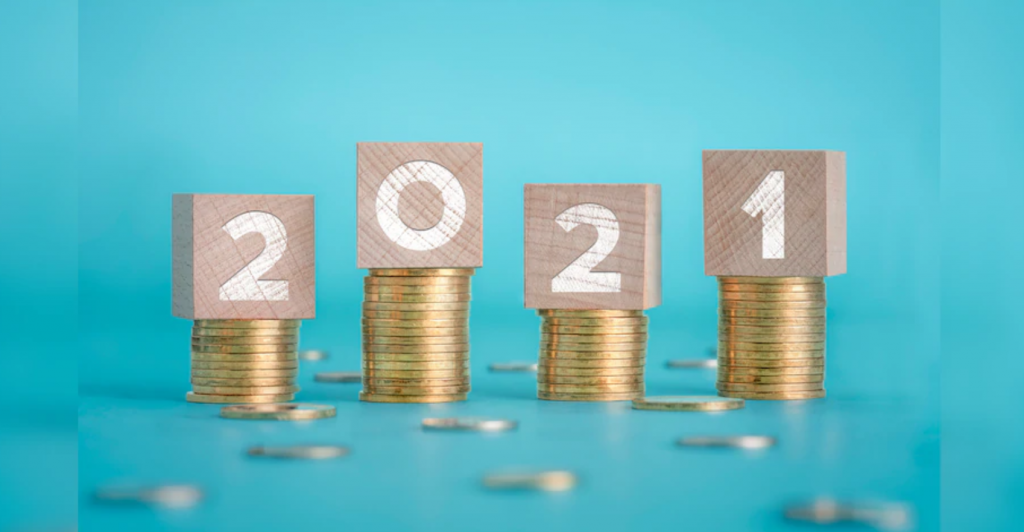
The start of a new year is a great time to consider your personal finance goals. Adding to your savings might be at the top of the list, especially if the coronavirus pandemic left you financially strained.
“One thing the pandemic has revealed is a real need for emergency savings,” said Matt Nadea, wealth advisor at Piershale Financial Group in Barrington, Illinois. “The unexpected can and will happen and having a stash of emergency savings can give you peace of mind when facing difficult situations.”
Nadeau said now is a good time to reevaluate your finances with an eye toward establishing both short- and long-term savings.
How to boost your savings quickly
If you’re ready to accelerate your savings efforts in 2021, there are at least three easy steps you can take.
- Open a high-yield savings account
- Set up automatic transfers to savings
- Make debt less expensive to save more
1. Open a high-yield savings account
When comparing savings accounts, it’s important to consider the APY you could earn. Short for annual percentage yield, APY reflects how much your money could grow based on how your savings account interest rate compounds over a year.
APYs for traditional savings accounts dipped in 2020 as the Federal Reserve cut the federal funds rate, which is the benchmark rate banks typically use to set interest rates for deposit accounts. But you could still cash in on higher interest rates with a high-yield savings account.
Let your high-yield savings account do the heavy lifting when it comes to earning interest on your hard-earned money. Open a high-yield savings account today to start collecting cash.
“A high-yield savings account might be the best place to keep your emergency fund,” Nadeau said. “Right now interest rates are at extreme lows, but you can still search for competitive interest rates while making sure to avoid monthly fees or balance requirements.”
If you’re not sure where to look for the best high-yield savings accounts, Credible can help. You can visit Credible to find a high-yield savings option that fits your goals. Also, keep in mind that some online banks may be offering sign-up bonuses as an incentive to open a new account.
2. Set up automatic transfers to savings
Automatic transfers can make it easier to get into the savings habit and ensure that you’re staying on track with your personal finance goals. Setting up automatic transfers is as simple as linking your checking account to a savings account or money market account, then scheduling a recurring deposit.
Nadeau said it’s also worth looking into fintech tools that can help with automating your savings.
“For example, there’s an app that will link to your bank account and automatically invest your spare change into a portfolio of ETFs,” he said. “There’s another app that will allow you to set savings goals and as you perform certain activities, the app will transfer a small amount of money into an account to help meet those goals.”
These types of automatic transfers can make growing your savings in 2021 painless and hassle-free. The more apps you use or the more automatic deposits you schedule, the more you can save.
Again, it’s also worth opening up a high-yield savings account and depositing some money from your paychecks in there, too. Credible can help you shop around online and get you set up with an account easily.
3. Make debt less expensive to save more
Nadeau acknowledged that many people may have found themselves in debt at the end of 2020. But he said that saving should still be a priority in the new year so you’re less pressured to rely on credit cards when unexpected expenses come along.
If you have credit card debt, student loans, or other debts, there are things you can do to make them less expensive. Consolidating credit cards with a 0% balance transfer offer or a personal loan with a low interest rate, for example, can save you money on interest costs. You could then apply those funds to your savings.
Visit Credible to compare balance transfer card options and choose the right one for you. With their free interactive tools, you can filter by card type and view card offers that are currently available.
And consolidating credit card debt with a personal loan can also offer the added benefit of improving your credit utilization rate, which could boost your FICO score.
Student loan refinancing might also make sense if you’re interested in saving money on student debt. You’ll need a good credit history and credit score to get approved but it’s worth exploring if you’re ready to make a move away from higher interest rates.
Weigh all the savings options
Opening a high-yield savings account can help you grow your cash cushion but don’t overlook other savings options, such as a certificate of deposit account or money market account. These FDIC-insured accounts can potentially offer a higher APY, depending on which bank you open them with.
When comparing savings accounts, remember to check initial deposit requirements, minimum balance requirements, and the monthly service fee, if any. Also, consider how often you can make a withdrawal from savings if needed and whether you’ll pay a fee for excess withdrawals. You can visit Credible to explore high-yield savings options to help you earn more interest in the new year and beyond.